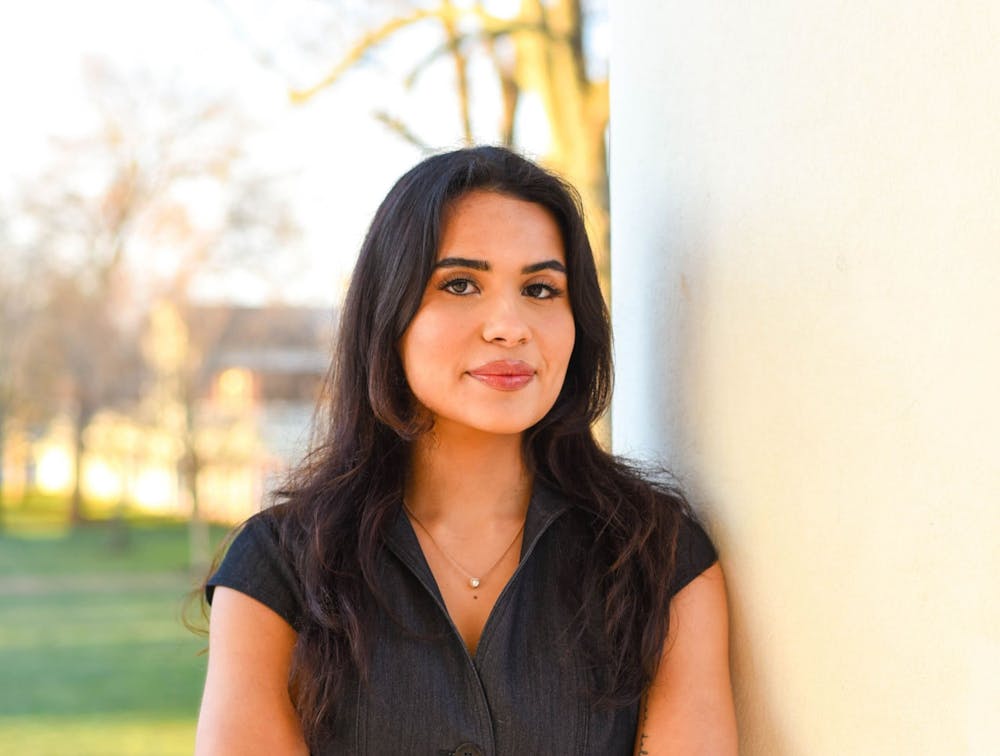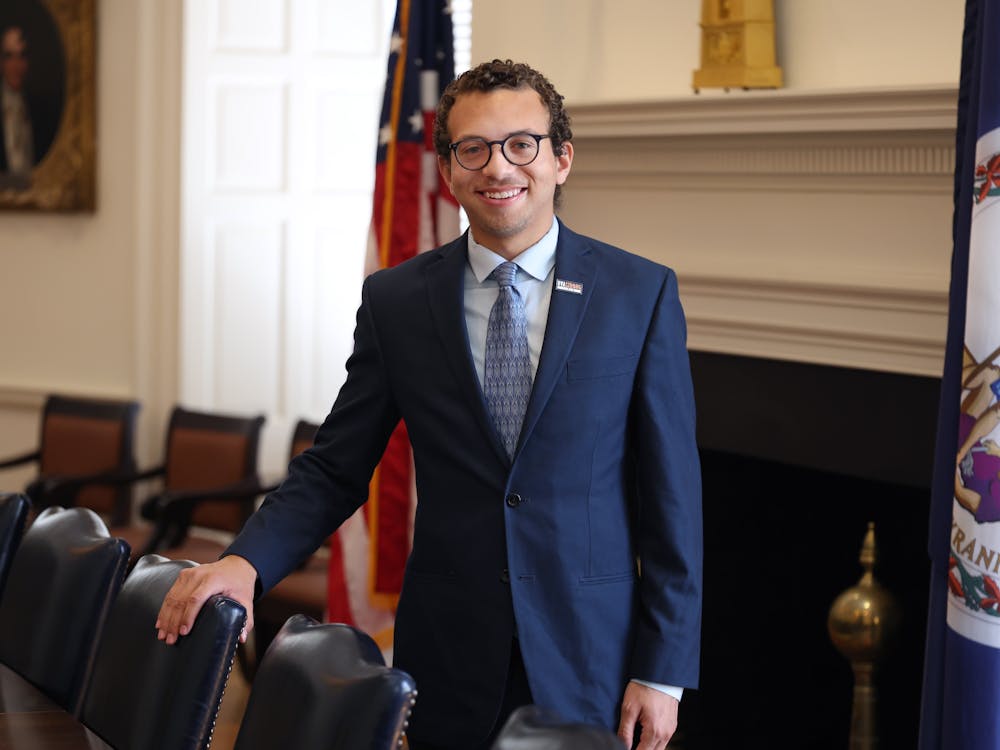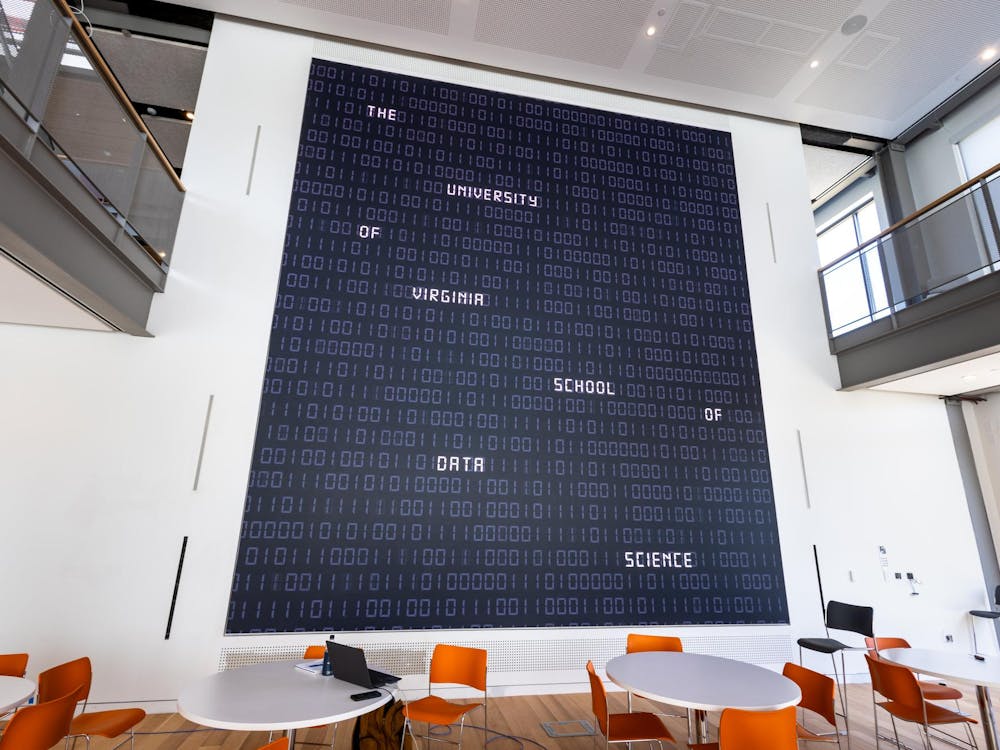Valentina Mendoza Gonzalez, incoming Student Council president and third-year Batten student, plans to improve the student body’s engagement with the Student Council by making its services more accessible and rebuilding relationships with underrepresented Contracted Independent Organizations during her term. In an entrance interview with The Cavalier Daily, she stated her intent to pay student leaders and said she aims to ensure that Support and Access Services — a Student Council branch providing a range of legal, financial and academic support resources — is accessible for all University students by providing more inclusive products.
Mendoza Gonzalez was elected Student Council president in last month’s student elections, winning in a race against third-year Engineering student Tyler Jones. This year’s voter turnout for the Student Council president election dropped slightly from last year’s election, decreasing from just under 20 percent to roughly 17.7 percent.
Mendoza Gonzalez ran as part of The Voice Movement, a ticket which also included third-year College student Brookelyn Mitchell and third-year College and Commerce student Ryan Bowers, who won the positions of vice president for administration and vice president for organizations, respectively. The ticket’s platform included expanding the services offered by Student Council’s Support and Access Services branch, as well as helping more CIOs apply for Student Council funding.
A third-year student in the Frank Batten School of Leadership and Public Policy, Mendoza Gonzalez recently served as director of coalition engagement for Student Council’s 2023-2024 term. When she first arrived at the University, Mendoza Gonzalez joined the student political organization Political Latinxs United for Movement and Action in Society, or PLUMAS. In addition to her work with PLUMAS, Mendoza Gonzalez has also been involved with the student dance group Fuego Dance Team, as well as the Latinx Leadership Institute, which seeks to develop leadership and professional skills among Latinx students at the University.
Mendoza Gonzalez said that mending relationships with underrepresented organizations is necessary to increase student engagement with Student Council and its services. She said that many student-led organizations do not trust Student Council, or use the funds Student Council offers to them as CIOs. Mendoza Gonzalez said surveying students about what they want from Student Council, as well as what might be discouraging them from engaging with its services currently, is another important step needed to bolster student engagement.
“We have so many services to offer as Student Council that we would love to see used in diverse ways,” Mendoza Gonzalez said. “Rebuilding that trust with underrepresented organizations can bring in a lot of student engagement from these pockets of U.Va. that are not engaged [with Student Council].”
In her interview with The Cavalier Daily, Mendoza Gonzalez also talked more broadly about the importance of student self-governance. She said the lack of compensation for student leaders decreases diversity across the University’s self-governance organizations. While compensating student leaders is not explicitly one of her intended policies, Mendoza Gonzalez said that implementing a system to pay student leaders would increase the representation of first generation and low-income students in student self-governance organizations.
“Student self-governance demands compensation,” Mendoza Gonzalez said. “To truly govern ourselves, we need to dive deeper into the systemic issues that discourage students from actively participating in student self-governance.”
Another step Mendoza Gonzalez proposed to foster diversity and inclusivity is creating a visitation program for admitted students from underrepresented communities. This program would allow prospective students to see the University’s diversity for themselves and allow them to meet and feel comfortable around their peers before beginning their time at the University, according to Mendoza Gonzalez.
This proposed visitation program was a major part of Mendoza Gonzalez’s campaign platform leading up to the election, and she said that she has secured support for the program from Vice Provost for Enrollment Steve Farmer and the Office of Undergraduate Admission at large. Mendoza Gonzalez explained that the visitation program will be especially useful in light of the Supreme Court’s June decision that ruled race-based affirmative action policies — which formerly allowed colleges and universities to consider an applicant’s race and ethnicity during the admissions process — unconstitutional.
“I’m very worried about what [U.Va.] will look like post-affirmative action case and [about] taking proactive steps to increase outreach to diverse students and underrepresented students,” Mendoza Gonzalez said. “I think that [the visitation program] could be very exciting to a lot of incoming students.”
Mendoza Gonzalez also said she aims to improve inclusivity by continuing to expand Student Council’s Support and Access Services branch, an effort she said is enabled by Student Council’s new $750,000 endowment. Student Council announced the creation of the endowment — which will allocate $250,000 in discretionary funds to Student Council annually, and is primarily designed to expand Support and Access Services — in November.
According to Mendoza Gonzalez, the endowment gives Student Council the opportunity to make the Support and Access Services branch more inclusive, thus encouraging more students to engage with Student Council at large. She cited including Black hair care products and more snacks that accommodate students with dietary restrictions in Student Council’s free store as two examples of ways to increase accessibility. Mendoza Gonzalez again emphasized the importance of community feedback, stating that community input is important when deciding how Student Council’s services should expand to accommodate students.
“Being involved members in our community and offering [inclusive services] to people is an organic way of marketing,” Mendoza Gonzalez said. “Once we’ve [dove] into our communities and taken the feedback of real students, using that money to go to what students want and need [will] make those [$750,000] a lot more impactful.”
Mendoza Gonzalez will begin her term at the end of March.







